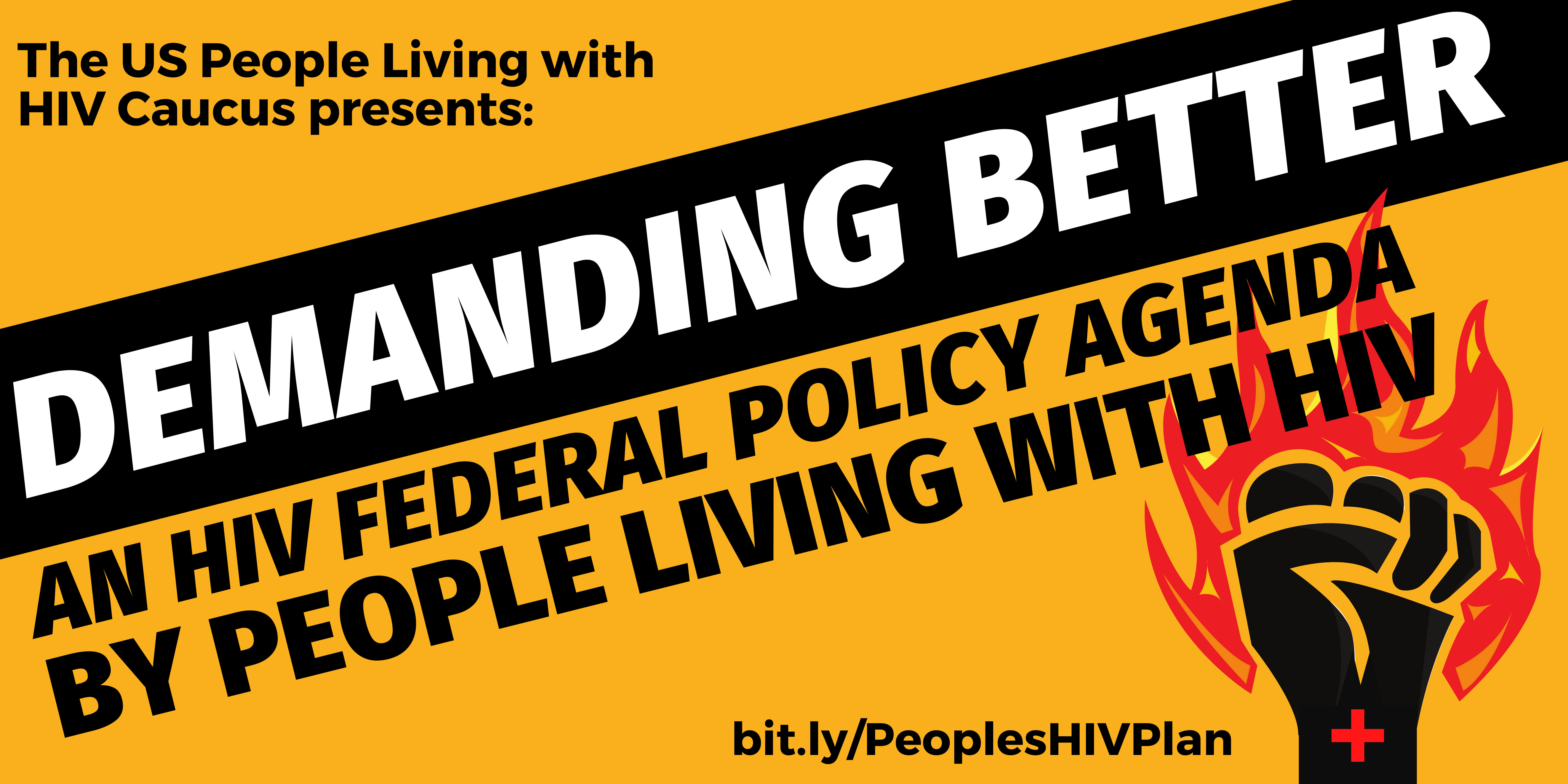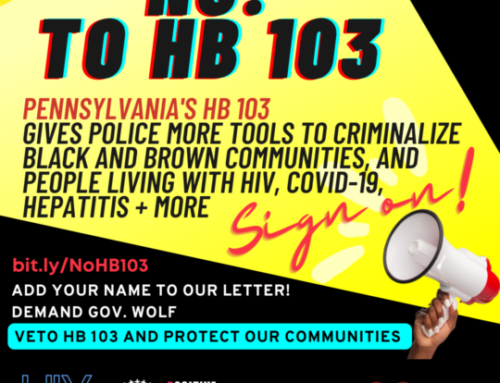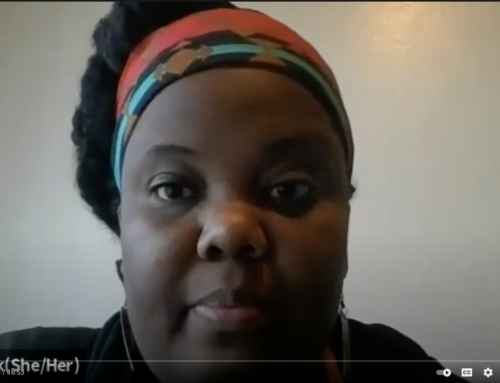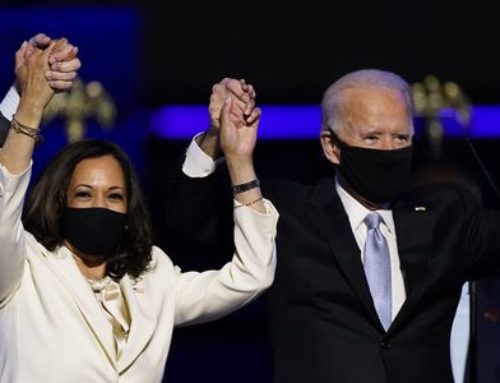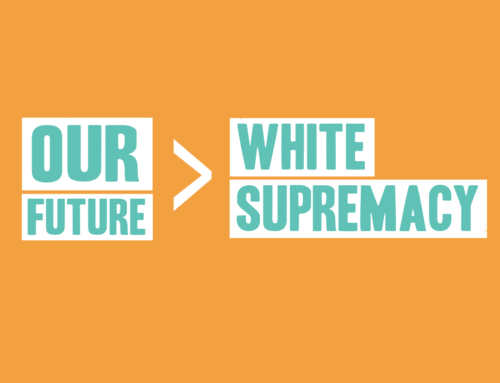40 years into the HIV epidemic, networks of people living with HIV demand a response that uplifts dignity, human rights, and wellness
The policy agenda, written collaboratively by member networks of the U.S. People Living with HIV Caucus, details concrete recommendations for the executive branch and Congress to address shortcomings in the National HIV Strategic Plan and the federal Ending the Epidemic initiative
Contact: Ronald Johnson, Chair, U.S. People Living with HIV Caucus, RJohn0403(at)aol.com
Naina Khanna, Co-Executive Director, Positive Women’s Network – USA, naina(at)pwn-usa.org
July 13, 2021: Forty years into the HIV epidemic and eleven years after the Obama administration released the first national plan to respond to and combat HIV and AIDS, much progress has been made—but the U.S. has a long way to go. The domestic HIV epidemic in the twenty-first century is driven by persistent racial and gender inequities that hinder efforts at prevention, diagnosis, treatment, and care; as a result, Black, Latinx, Indigenous, and other communities of color face both disproportionate rates of HIV and worse health outcomes once diagnosed. Although biomedical tools exist that could end the HIV epidemic, stigma, discrimination, and ongoing human rights violations continue to impede access to healthcare, which is key to ending the epidemic. The only way to address the domestic HIV epidemic once and for all is to formally engage leadership from people living with HIV and to move beyond a biomedical approach to humanize the HIV response.
Demanding Better: An HIV Federal Policy Agenda by People Living with HIV lays out a clear roadmap for the administration, Congress, and federal agencies to achieve their goal of ending the HIV epidemic by 2030 with a focus on improving quality of life for people already living with HIV. Authored by the U.S. People Living with HIV Caucus, a “network of networks” of people living with HIV, including representatives from the Global Network of People Living with AIDS – North America, International Community of Women with HIV/AIDS – North America, National Working Positive Coalition, Positively Trans, Positive Women’s Network-USA, the Reunion Project, SERO Project, and THRIVE SS, Demanding Better presents a pathway forward. The networks collectively represent tens of thousands of people living with HIV, who have informed the agenda.
“There are more than a million people living with HIV in the United States today. If we have learned anything over the past 40 years, it’s that ending the HIV epidemic is not even possible without actively partnering with people living with HIV. We need and deserve a response that honors the rights of all people living with HIV to health, wellness, dignity, and safety,” said Ronald Johnson, chair of the U.S. People Living with HIV Caucus, and a former member of the President’s Advisory Council on HIV/AIDS (PACHA).
Demanding Better: An HIV Federal Policy Agenda by People Living with HIV centers around five broad issue areas: i) structural integration of communities most impacted by the domestic epidemic into the HIV response; ii) creating an affirming human rights environment for people living with HIV; iii) addressing racial and gender inequities; iv) attending to sex workers and immigrants within the response and v) affirmatively committing to improve quality of life and care for people living with HIV. Demanding Better offers concrete recommendations for administration officials to strengthen the HIV National Strategic Plan, federal Ending the HIV Epidemic initiative, and the overall domestic response to the epidemic. Specific recommendations include addressing HIV-related stigma; robustly funding and staffing the Office of National AIDS Policy; rechartering federal HIV advisory bodies to add designated seats for representatives of networks of people living with HIV; including employment services for people living with HIV in the Ryan White HIV/AIDS Program; declaring a moratorium on molecular HIV surveillance; adding sex workers and immigrants as priority populations within the HIV response; creating a minimum standard of care for people living with HIV; and addressing sexual and reproductive health and rights for people living with HIV.
The policy agenda is not solely focused on the executive branch, however, and includes recommendations for Congress to meaningfully improve the lives of people living with HIV. These recommendations range from legislation that has already been introduced, such as the SAFE Sex Worker Study, HEAL for Immigrant Families, and American Dream and Promise Acts, to new legislation and changes to existing policies. As with the administrative policies, these recommendations cover a range of issues that impact every aspect of the lives of people living with HIV, from housing to food and economic security.
Demanding Better serves as the most comprehensive federal policy vision for people living with HIV to date and should be looked to as a roadmap for all stakeholders concerned about the domestic HIV epidemic.
To hear more about the agenda, join this week’s Center for American Progress virtual event: Beyond Medication: Humanizing the National HIV Response; Wed 7/15 at 11am PT/2pm ET. Hear from people living with HIV and Harold Phillips, Director of the White House Office of National AIDS Policy (ONAP) about what’s next in the federal response to HIV.
For more info and to RSVP, go to: https://www.americanprogress.org/beyond-medication.



